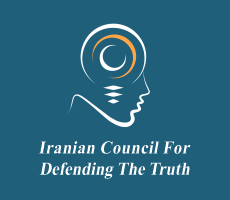The current situation in the Middle East is characterized by an ongoing chaos that has lasted for decades. The US and Israeli policies in the region have progressively destabilized most of the states in the area (which, historically, having emerged from Western colonization, were far from well defined). Now, in particular, we are in a phase of transition, that of the era characterized by the Trump administration, in which Israel played a central role, to that of the Biden administration, fearful of losing the support of some Arab countries in favor of example of China or Russia.
The Palestinian question remains central, as we see these days. The Zionist presence in Palestine is absolutely indispensable to the United States of America, that is to the dominant economic-financial-military potentates, to have the Mediterranean “Sea Power”, the containment of the Russian land hegemon and China (but also the political and political “blackmail” financial over the reunified Germany, that is, over Europe) and at the same time control over the Arab world and the oil routes. The “energy routes” depart from the Persian Gulf, through the Red Sea and the Mediterranean, to Europe. Ownership of this strategic Gordian knot on a continental basis will largely ensure planetary global dominance in the 21st century.
Palestine is therefore exactly in the center of gravity of our Eurasian-Mediterranean-Middle Eastern geopolitical area. It is the point of convergence where the opposing forces of the mentioned geopolitical units unload. Its position between the two internal seas (Mediterranean-Red Sea), one step away from the Suez Canal and not far from the Persian Gulf, also makes it strategically decisive for the connections between the two Atlantic and Indian oceans, i.e. on the route of the modern world energy.
The Biden administration fears the competition from Chinese energy and infrastructure projects in the area, which from Pakistan to Iran (Belt and Road Initiative) could considerably and peacefully change the geopolitical situation of the region. In particular, the greatest pressure is placed on Ryad; if Saudi Arabia succeeded in making peace with Damascus and Tehran, all of Washington’s calculations would have turned out to be wrong. The strategy of maximum pressure against Iran is now being exported by Biden towards all countries in the region, forcing them to side with either the US or China. This does not allow him to lean excessively in favor of Israel, as Trump did previously.
These are not easy talks, because a fundamental pre-requisite is missing, namely the recognition that Iran had actually respected the previous Nuclear Agreement and that the Trump administration wanted to blow it up. Evidently in diplomatic negotiations the element of trust is an indispensable prerequisite, but how can we think of being optimistic if we look at previous attempts? Furthermore, in Iran there is a considerable part of public opinion that is no longer in favor of this compromise (the forthcoming Iranian elections will be indicative in this sense), the right of one’s own country to use nuclear energy for civil (non-military) purposes as an acquired right. Certainly, for various reasons, there is instead a part of the foreign forces, European, Russian and Chinese (partly also in the Biden administration) who are in favor of a new Agreement.
They will also have to contend with Israel’s hostility to the talks. A gesture of good will (with a sure propulsive effect for a new round of negotiations) on the part of Washington could be the removal of the economic sanctions against Iran, all the more absurd and unfair because they involve vital sectors such as health care, but we will hardly see such a scenario. The European Union has so far limited itself to preparing technical, economic and financial mechanisms necessary to guarantee its businesses trade with Iran but by setting “unique” conditions; Brussels has in fact asked Rohani to join the FATF (an intergovernmental body to combat money laundering) and start negotiations on its missile program before INSTEX (SPV) enters into force.
The Special Purpose Vehicle should be used for the trade of food and other goods related to the humanitarian field such as medicines, therefore goods not subject to US sanctions. The real challenge will be to be able to use it also for transactions in goods such as oil; in fact, considering that the entire mechanism is based on a credit accumulation system, it is not clear how much Iran will be able to accumulate through the export of non-petroleum products.
Undoubtedly there is an internal component in the explanation of Biden’s aggressive foreign policy: bombings on Syria, continuation of the policy of sanctions against numerous countries, interference in the internal affairs of sovereign nations under the guise of human rights … The assault on the Capityol Hill of the last January 6 is only the signal of a profound internal disease that characterizes American society and that we are trying to discharge outside. Some Russian analysts such as Igor Panarin have spoken in the past of the possibility of an American civil war that would lead the United States to divide along identity and regional dividing lines, but these are difficult to calculate forecasts in the short term.
There is a messianic component in the international action of the United States which indistinctly characterizes all US administrations. That is, the idea of representing an indispensable nation in the world order, a model from which all other countries must draw an example, willy-nilly. This is US unilateralism that tried to export with war and propaganda after the fall of the Berlin Wall but which is now clashing with the opposite multipolar vision of the Eurasian States.
Finally, there are a series of economic interests linked to the US military-industrial-financial sector and dispensers of financing to Washington’s decision makers, which converge towards an increasingly aggressive foreign policy. This is why the Biden Administration is unlikely to change anything in the general behavior of the United States in the world.

